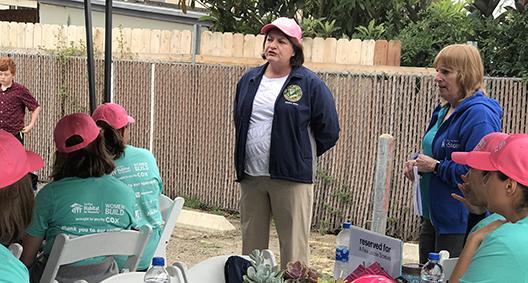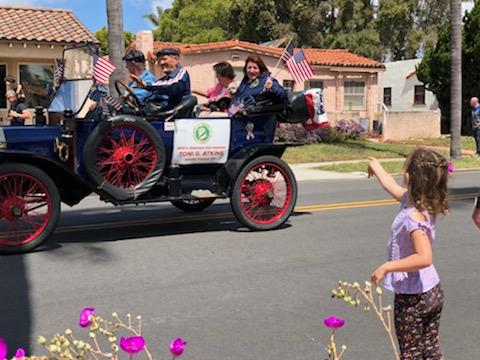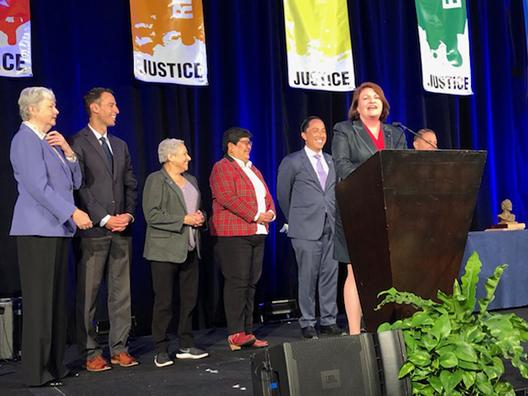June 2019 Newsletter
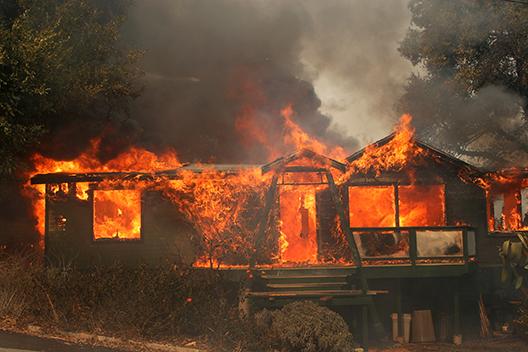 |
These days in California, fire season is never too far off. As soon as the winter rains give way to spring and summer – if they ever do! – the clock starts ticking and the risks of wildfire start mounting.
The first half of this decade in our state was marked by historic drought. The latter has so far been defined by unprecedented wildfires, including the deadliest and most destructive in California’s history, the Camp Fire. At its peak, that blaze consumed more than a football field every three seconds, spreading rapidly, and with tragic effect.
Six months later, thousands of residents are still without homes. Local drinking water is dangerously polluted with benzene and other toxic byproducts of the fire. And the insured losses alone have exceeded $8.4 billion already, to say nothing of the uninsured.
Because wildfires are sometimes ignited when tree branches come in contact with energy transmission lines during extreme wind storms, utility companies are implicated and the financial ripples can reach ratepayers – so everyone is potentially affected.
It’s clear that California needs comprehensive reforms to better manage the growing fire risks we face.
What happened in Paradise is a dire warning for the future of the Golden State. Ratepayers are likely to feel the consequences for years to come, even in the unlikely scenario that there are no severe wildfires on the horizon. That damage has already been done. But while we continue our recovery and rebuilding efforts in each of the communities recently devastated by wildfires, we also have to decide how we will respond to future disasters. And we must take proactive steps to limit the damage.
In April, Governor Newsom issued a comprehensive report detailing the key risks to California’s economy, energy infrastructure, and public safety, posed by wildfires in the age of climate change. The Legislature is currently reviewing our policy options to determine the best path forward.
One thing is clear: Inaction is not an option. Climate change is here, and it’s threatening to upend our energy systems, our economy, and our way of life. The status quo is too dangerous, too unpredictable, and too expensive. There may be no easy answers, but we’ve already seen what can happen if we don’t act, and the costs to human health and wellbeing are simply unacceptable.
I urge every Californian, whether you live in a coastal city or a rural inland community, to learn more about the risks in their community, and take precautions to prepare for the uncertain. And I hope Californians make their voices heard in this legislative process, because we all have a stake in this fight.
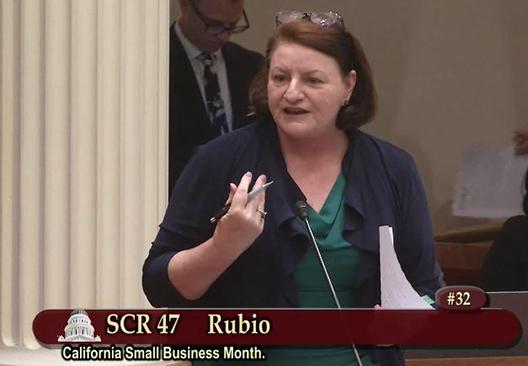 |
It’s true that small businesses play a leading role in driving our state’s economy forward, employing more than 7 million people and generating billions of dollars for California’s economy. But that doesn’t do their impact justice. Small businesses also help define the character of our communities and sustain us in our daily lives.
It’s no exaggeration to say I wouldn’t be able to do what I do without the small businesses in my life – my nail salon, my veterinarian, my eye doctor and my dentist who I’ve been seeing for decades. I would be a mess without them!
Small businesses throughout San Diego and California deserve to be celebrated. That’s why, on May 16, the Senate passed SCR 47, a resolution I co-authored with my colleague Senator Susan Rubio declaring May to be Small Business Month in California.
And to help draw attention to the difference small businesses make for our state and regional economies, as well as in our communities and our personal lives, I have been posting on social media about some of the many businesses in the San Diego region that I appreciate. You can see them on my Twitter and Facebook pages.
The postings will continue until June 19, when I and other Legislators will each honor a Small Business of the Year from our districts in a special ceremony in Sacramento.
I invite you to share with your followers on Facebook, Instagram and Twitter messages about the small businesses that make a difference in your life.
 |
Every year since 2015, I have spearheaded Socks for Stand Down, providing thousands of pairs of socks and underwear for veterans who participate in Stand Down, an annual three-day event run by Veterans Village of San Diego where struggling military veterans can access services, bond with one another and get some much-deserved rest and relaxation.
The drive has been so successful – thanks to incredibly generous San Diegans – that Veterans Village doesn’t need any more socks!
So, this year, I’m shifting to Skivvies for Stand Down, because they still need undergarments, and I’m asking you, if you’re able, to donate new underwear, bras and undershirts for men, women and children in need.
You may do so at the following locations through June 24:
Allied Gardens/Benjamin Branch Library
5188 Zion Ave., San Diego
California State Building – Lobby or Pro Tem Atkins’ office in Room 4061
1350 Front Street, San Diego
Carmel Valley Branch Library
3919 Townsgate Drive, San Diego
Clairemont Library
2920 Burgener Blvd, San Diego
Coronado Public Library
640 Orange Ave, Coronado
Del Mar County Library
1309 Camino Del Mar, Del Mar
La Jolla/Riford Branch Library
7555 Draper Ave., La Jolla
Linda Vista Branch Library
2160 Ulric St., San Diego
Malcolm X Branch Library
5148 Market St, San Diego
Mira Mesa Branch Library
8405 New Salem St., San Diego
Mission Hills/Hillcrest Branch Library
215 W Washington St, San Diego
Mission Valley Library
2123 Fenton Pkwy, San Diego
Pacific Beach/Taylor Branch Library
4275 Cass St., San Diego
Point Loma/Hervey Branch Library
3701 Voltaire St., San Diego
Rancho Bernardo Branch Library
17110 Bernardo Center Drive, San Diego
Rancho Peñasquitos Branch Library
13330 Salmon River Road, San Diego
San Diego Law Library
1105 Front Street, San Diego
Serra Mesa-Kearny Mesa Branch Library
9005 Aero Drive, San Diego
Solana Beach Branch Library
Earl Warren Middle School
157 Stevens Ave., Solana Beach
University Community Branch Library
4155 Governor Drive, San Diego
University Heights Branch Library
4193 Park Blvd, San Diego
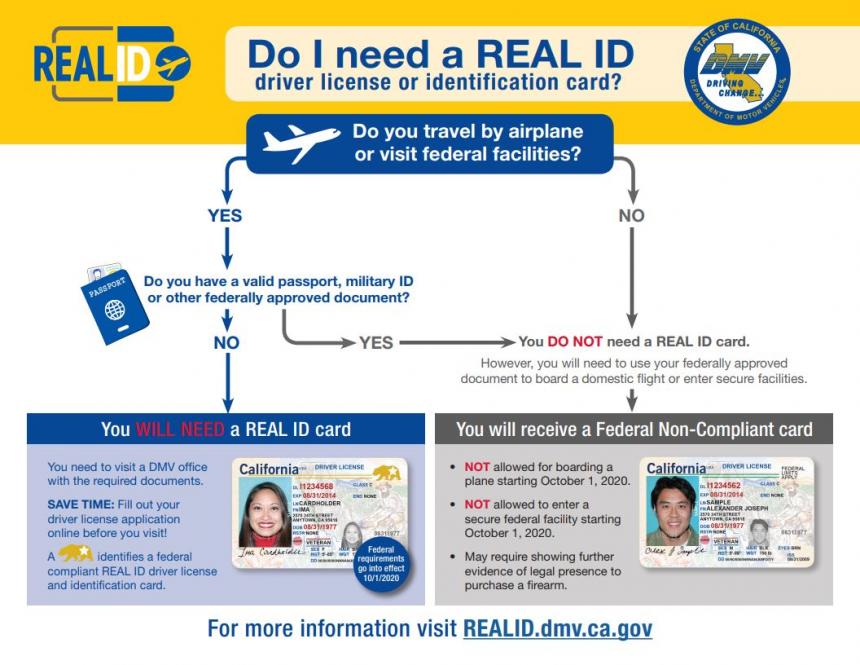 |
The Department of Motor Vehicles has been busy issuing REAL ID driver licenses. Those who don’t have a passport, or have one and don’t want to use it to board a domestic flight, will need a new REAL ID by October 1, 2020. Please follow the guide above to determine whether you need a REAL ID, and carefully read the instructions on the DMV website to ensure that you’re prepared with the necessary documents. As always, call my office if we can be helpful: 619-645-3133
 |
I am grateful for the food banks that exist in San Diego and across California, but I’m saddened that too many people rely on them to meet their nutritional needs. For example, the San Diego Food Bank, the largest such charity in our region, serves an average of 350,000 people every month.
For people who receive Supplemental Security Income (SSI), help is on the way. Beginning on June 1, these Californians will be eligible for federal food benefits. This shift in policy will be a tremendous opportunity to increase food security and reduce hunger and poverty for the estimated 500,000 SSI recipients in California, including roughly 80,000 in San Diego County.
Under the old policy, SSI beneficiaries had a $10 “nutrition benefit” added to their checks to pay for food, but they were ineligible for food benefits, or CalFresh, in California. The state Department of Social Services has been working with counties and advocates on a plan to ensure that SSI beneficiaries – older residents or those who live with disabilities – will find out if they are eligible.
We’ve reached the midway point in this year’s legislative session. On May 31, the Senate cleared its docket of Senate bills, and the Assembly did the same with its bills. Now, the bills that passed in their house of origin travel to the other house for consideration in policy committees. Here’s a rundown of my legislation this year:
SB 1 – the California Environmental, Public Health, and Workers Defense Act of 2019 – is California’s “insurance policy” against the reckless deregulation happening at the federal level. SB 1 ensures that any federal environmental or worker safety standard in place as of January 19, 2017, remains in effect under state law even if the federal government rolls it back.
SB 66 allows clinics and rural health care providers to bill Medi-Cal for two visits on the same day if patients receive mental health treatment on the same day they receive other medical treatment. This will help ensure health care providers can continue to deliver vital mental health services and be reimbursed for those services.
SB 165 is the next step to ensure that limited English proficient Medi-Cal enrollees have qualified in-person language interpreter services when they visit their medical provider. The bill is a follow-up to AB 635, which required a study of the issues surrounding medical interpreters and creates a four-site pilot project.
SB 451 creates an economic-development tool by establishing a tax credit for the preservation and rehabilitation of historic buildings in California. To qualify, the property must be on the National Register of Historic Places or the California Register of Historical Resources. The applicable credit will be for 20% of the qualified rehabilitation expenditures, and would offer a 5% bonus on top of that if certain criteria are met. California is one of 15 states that do not have a state-level historic preservation tax credit.
SB 507 transfers the remaining submerged areas within San Diego Bay controlled by the State Lands Commission to the Port of San Diego. The bay’s waters would be better managed by the same local agency that oversees the land around the bay – the Port of San Diego. SB 507 is common-sense and overdue legislation that will improve environmental, economic and safety conditions in San Diego Bay and eliminate duplicative efforts while maintaining the protection of the public tidelands.
I will continue to provide updates on all of my bills as they work their way through the legislative process. Please feel free to contact my terrific, hard-working district staff for the latest information from the Capitol: 619-645-3133.
|
Social Media Corner |
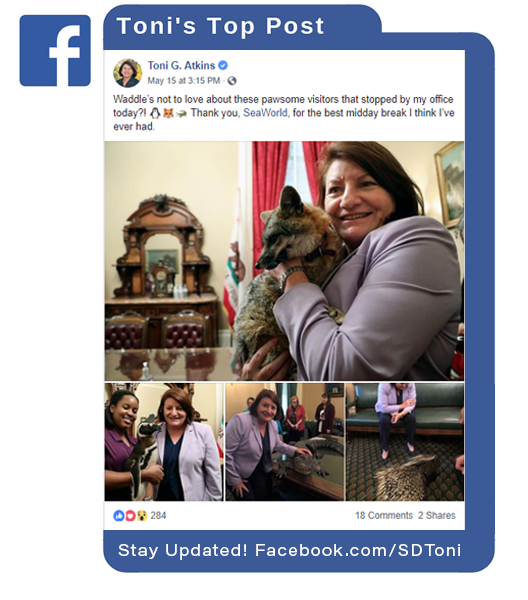 |
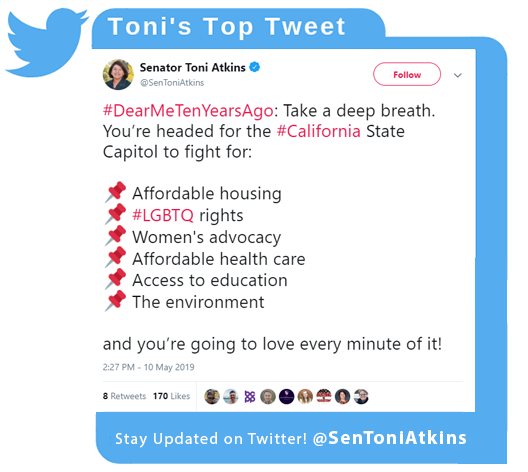 |
My district staff is always available to help constituents navigate a complex web of state agencies. If you’re having trouble working out an issue with any state agency, please call my office at 619-645-3133, and my staff will do everything in their power to help.
|
My District Staff |
Where to Find Me Online
|
My district office is located at 1350 Front St., Room 4061, San Diego, CA 92101.
|
|
|
|
|
|
|
|
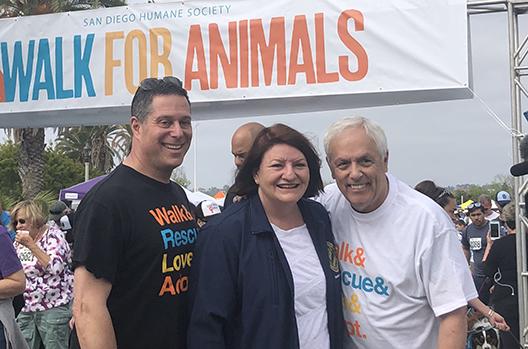 What a thrill to help count down the start of the San Diego Humane Society’s Walk for Animals! So many wonderful animal lovers doing their part for the furry members of our community! |
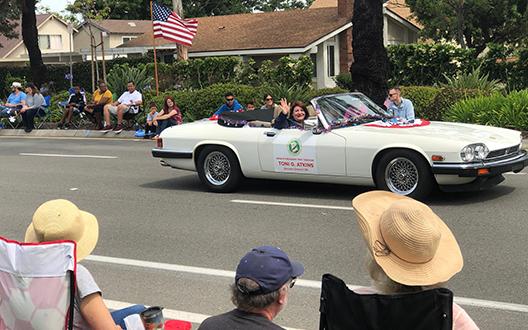 I couldn’t think of a better way to kick off a May weekend than with the energy and excitement at the Kiwanis Club Tierrasanta Patriots Day Parade. |


